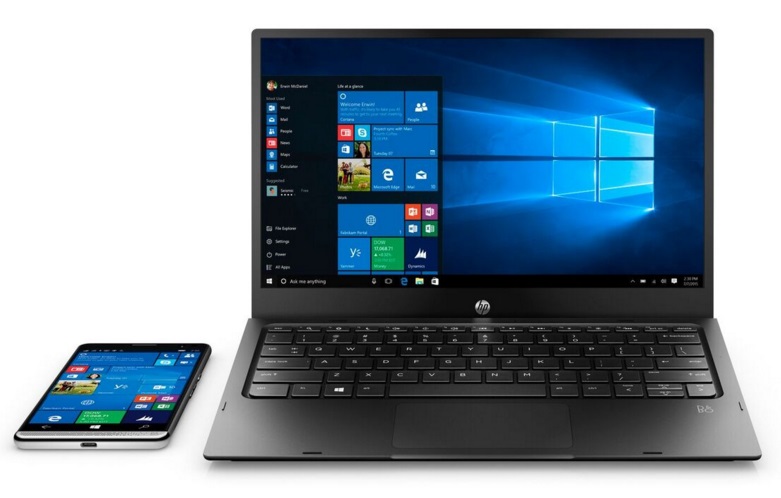HP seeks to provide the missing piece of the Microsoft Continuum puzzle

The new six-inch HP Elite x3 Windows 10 Mobile phablet announced today at Mobile World Congress is focused squarely at business users, not consumers. That focus means being able to run Windows Store/Windows Universal apps only isn't enough.

Microsoft's Windows Phone Continuum technology -- which allows users to connect large screens, mice and keyboards to their phones -- is limited in that it only allows users to run Universal Windows Platform applications. The missing piece of the puzzle that HP is bringing to this setup is its HP Workspace technology that will allow users to remotely run legacy/line-of-business .NET and Win32 apps, too.
"Desktop apps are hard to handle in a world focused on mobile -- especially line-of-business apps that will never be rewritten for mobile," said Michael Park, HP Inc. Personal Systems' General Manager and Global Head of Mobility.
That's where Continuum and HP Workspace come into play, Park said.
HP isn't yet ready to divulge all the particulars about HP Workspace. Currently, if you do a web search for "HP Workspace," you'll likely see information on a product connected to its HP Sprout desktop-scanning offering. HP is in the midst of phasing out that connection and will use the HP Workspace name, going forward, to describe the virtual app functionality associated with the HP Elite x3, officials said.
HP Workspace is a client-side app that will enable administrators to manage a catalog of virtualized legacy apps for their end users that are based on their Active Directory profiles. Users will be able to access company-approved legacy apps when their Elite x3 phones are connected to the Desk Dock or Mobile Extenders, which are the components that allow users to use large-screen monitors and/or HP's coming 12.5-inch notebook-style device.
HP Workspace will use Citrix app-virtualization or Azure RemoteApp underneath as the plumbing between the virtual machine environment and the Elite x3 client. It also will tap into other HP back-end services that will give IT a way to monitor, track and analyze client-side devices and applications through a series of predefined reports.
(Independently of what HP is doing, Microsoft also is working to deliver a version of its Remote Desktop client that will support Windows Phones with Windows 10 Mobile and Continuum.)
HP Workspace pricing has yet to be determined but the service will be rendered as a monthly subscription per user once available, a spokesperson told me. The HP Workspace software update for Windows 10 will be required and is "planned in a future release," according to HP's press release. A subscription to use it will be required and the appropriate virtualization licensing for use of apps on a corporate network also must be in place.
The HP Elite x3 is expected to be available some time later this summer. Pricing of the phone, dock, extender and other accessories will be announced closer to availability HP officials said.